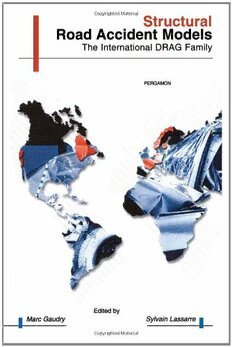
Structural Road Accident Models PDF
373 Pages·2000·16.486 MB·English
Most books are stored in the elastic cloud where traffic is expensive. For this reason, we have a limit on daily download.
Preview Structural Road Accident Models
Description:
DRAG (from un modele de la Demande Routiere, des Accidents et leur Gravite) is a complex computer model that simulates accident propensities under detailed conditions. The DRAG approach constitutes the largest road accident modelling effort ever undertaken. Gaudry is the creator and developer of DRAG and this work explains its nature, purpose and value. Such a model, which explains accidents for a whole region, province or country, has advantages in answering many questions asked about accidents (such as the role of the economic cycle, weather, prices, insurance etc.) that other models fail to take fully into account. DRAG research is underpinned by a fundamental theoretical innovation which sees a 3-level approach to analysing the determinants of the number of road victims in a given accident: Exposure (the distance travelled), Accident Frequency Risk and Accident Severity Risk (i.e. the number of victims of each type of accident). In applying flexible mathematical forms, the DRAG model also allows significant conceptual and empirical claims to be made about the importance of detecting responses that reverse themselves (to alcohol, and to other factors). Under Gaudry's guidance, a family of DRAG-inspired models has grown up, based on their development for different countries and this book explores each national model in turn. As more countries seek to adopt the DRAG approach, this book serves as a timely, unique and valuable guide to the model.
See more
The list of books you might like
Most books are stored in the elastic cloud where traffic is expensive. For this reason, we have a limit on daily download.
